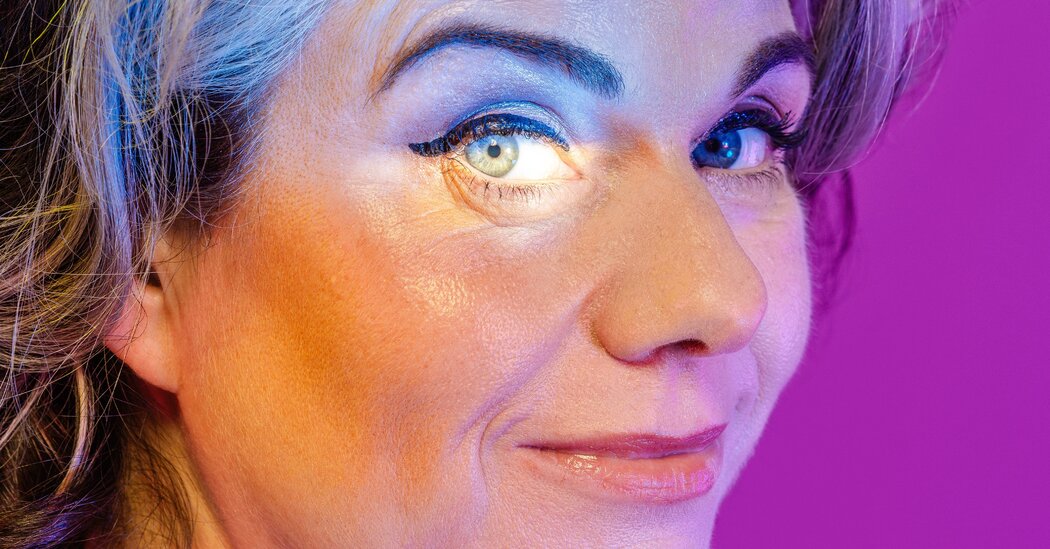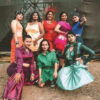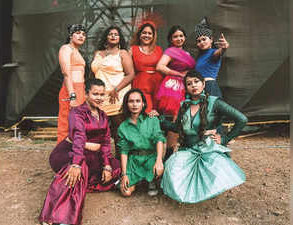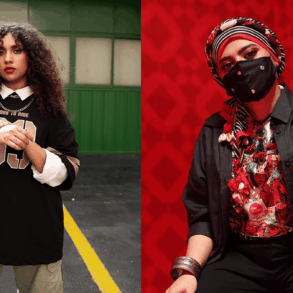
With the arrival of her part memoir, part manifesto “How to Be a Woman” in 2011, Caitlin Moran established herself as one of her generation’s funniest and most fearless feminist voices. Moran, who is 48 and who first made her mark in the early 1990s as a wunderkind music journalist for British publications, has published four ribald and emotionally honest books of nonfiction and two novels since then and has continued to work as a columnist at The Times of London. Now, with her new book, “What About Men?” Moran turns her eye to what she sees as the limited and limiting discussions around modern masculinity. It’s a book she felt duty-bound to write. “All the women that I know on similar platforms,” Moran says, speaking about fellow writers, “we’re out there mentoring young girls and signing petitions and looking after the younglings. The men of my generation with the same platforms have not done that. They are not having a conversation about young men. So given that none of them have written a book that addresses this, muggins here is going to do it.”
There’s a lot of generalizing in your book when it comes to men: They’re obsessed with band T-shirts and emotionally inarticulate and constantly talking about their balls. Is it possible that relying so heavily on those kinds of jokey stereotypes and clichés risks undercutting the deeper points you’re trying to make about the need to open up possibilities for how we think and talk about masculinity? I’m a mainstream writer. If I’m going to start talking about a difficult idea, I want to approach it in the most successful way possible. You need to start with a generalization that is going to get people to go either, “Yes, I recognize myself in that,” or, “No, I don’t agree.” Maybe a lot of people are going, “Men are emotionally literate, they can talk to each other,” but I sat down to watch “The Bear,” which has been lauded everywhere, and it’s about men who can’t talk about their emotions. I see that as a far more clichéd depiction than anything that I’ve done in this book.
Part of the framing of your book is that there’s not enough discussion about young men’s struggling to adapt to changing ideas about masculinity. I feel as if that’s a big topic of conversation these days. So what is the fresh thinking that you’re bringing to it? Feminism has a stated objective, which is the political, social, sexual and economic equality of women. With men, there isn’t an objective or an aim. Because there isn’t, what I have observed is that the stuff that is getting the most currency is on the conservative side. Men going: “Our lives have gotten materially worse since women started asking for equality. We need to reset the clock. We need to have power over women again.” We are talking about the problems of women and girls at a much higher level than we are about boys and men. We need to identify the problems and work out what we want the future to look like for men in a way that women have already done for themselves.
Beanie Feldstein in the 2019 film “How to Build a Girl,” adapted from Caitlin Moran’s semi-autobiographical novel.
IFC Films, via Everett Collection
You used to write a lot of celebrity profiles. Can you tell me a good anecdote about a famous person that you’ve never told before? The New York Times would never publish it. Absolutely filthy.
Try me. [Moran tells an epically filthy story about a British one-hit wonder from the 1990s.] You’re not printing that, are you?
Moran onstage in London during a 2014 book tour.
WENN Rights Ltd/Alamy
How do you think the public discussion of feminism has changed since “How to Be a Woman”? I think the younger generation of feminists are even more open-minded and openhearted and sincere in what they do. But the downside is that a lot of the humor and the lightheartedness and the ability to ask a question about an idea has gone. The thing that I observe in younger women and activists is that they’re scared of going online and using the wrong word or asking the wrong question. As a result, we’re not having the free flow of ideas and questions that makes a movement optimal. We appear to have reinvented religion to a certain extent: the idea that there is a sentient thing watching you and that if you do something wrong, it will punish you. God is very much there in social media. I feel that having been born in an era before social media, I grew up godless, and it made me a lot freer than my daughters’ generation.
What’s an idea that people are afraid to talk about more openly? Trans issues. In the U.K., you are seen to be on one of two sides. It’s the idea that you could be a centrist and talk about it in a relaxed, humorous, humane way that didn’t involve two groups of adults tearing each other to pieces on the internet.
This interview has been edited and condensed for clarity from two conversations.
David Marchese is a staff writer for the magazine and the columnist for Talk. He recently interviewed Alok Vaid-Menon about transgender ordinariness, Joyce Carol Oates about immortality and Robert Downey Jr. about life after Marvel.
This post was originally published on this site be sure to check out more of their content.






